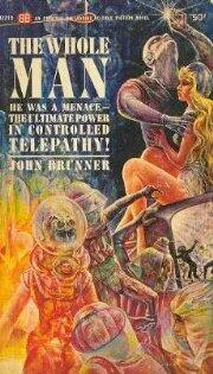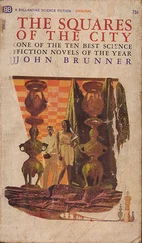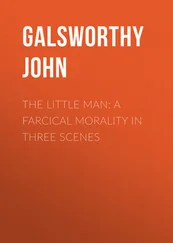“All right,” he said aloud. “May I have silence, please ?”
Rudi…
The figure on the bed stirred very slightly. That was the only visible clue to his reaction. But inside his head he was answering.
What do you want, you interfering bastard?
I saved your life, Rudi.
For what? For pain like this? You condemned me to it when you interfered and stopped me doing what I meant to do.
Howson took a deep breath. He had said earlier to Clara that a projective telepathist could tell a lie convincingly; now he summoned up all his reserves to prove the corollary — that he could equally convincingly tell the truth.
I know, Rudi. I can feel that pain as sharply as you, remember! I’m fully aware of what I’ve done to you. Now I must give you something to compensate — happiness, or satisfaction, whatever you want that I can let you have. Otherwise how would my conscience treat me?
The whole mind was involved in this. Behind the verbalized projection, smoothly, automatically, Howson fed in a reflection of Rudi’s suffering, filtered through his own mind, impressed with his own personality.
A feeble flicker of disbelief: But you’re nothing to me. We’re strangers, and today we might have been a thousand miles apart.
Nobody is nothing to one of us. And behind that, because it was too complex to put into words, Howson made himself consciously feel what was usually so much a part of himself that he never gave it a thought — the shared quality of a telepathist’s existence, the need and hunger and yearning which were all the ordinary individual’s needs and hungers and yearnings a million fold multiplied, as if in a hall of mirrors by reflection redoubling and redoubling themselves away towards infinity.
This was why a telepathist became a peacemaker, or a psychiatrist, or a curative telepathist, or a disputes arbitrator — helping people to be happier or better off or more fulfilled. It was also why he had been eager to tell splendid glamorous telepathic stories to the deaf-and-dumb girl he now knew as Mary Williams, and why he had been so bitterly disappointed to learn that the pleasure had turned into a Greek gift.
It was also why (though ordinary people were always suspicions Of the assertion unless they had been shown its truth by someone like Howson) there had never been a telepathist who was antisocial, who became a master criminal or general of an army. No telepathist could stand in the place of Chaka Zulu and order his hordes to ravage a season’s journey in the direction in which he cast his spear; no telepathist could consign fellow-beings to a gas chamber, or annihilate them in atomic war. They were too human to have shed all desire for power, but to enjoy it they had to take the road into the isolation of madness; in the real world they suffered their victims” pain, and had no pleasure from cruelty.
It was also the naked truth.
Rudi’s eyes flickered open, and he looked at the vacuous face masking the keen mind. Last night, when they first met, he had ignored the conventional reaction to Howson’s small stature, deformity, unprepossessing appearance — but because on principle he ignored the conventions which demanded the reactions. He was half-Israeli; perhaps his people had a legacy of conventional prejudices enough to last them for eternity—all directed against them. So, by analogy, he would have leaned over backwards to avoid offending a negro. So would millions of people; only most of them, if they failed to learn the logic of prejudice, learned the logic of self-interest and therefore conformed. Rudi would not.
He yielded now to the pressure of pain; it was easy to slip back into the fog of despair. For Howson, it was very hard to follow him, but it had to be done — and he had done it often in the past.
Why did you do it, Rudi?
A complex picture of dissatisfaction with the work he had set himself to do; with the reception it had had; with the inability of other people to understand what he was doing. Add to that: money troubles, because of the stopping of his grant; emotional problems on a personal level — he needed the affection and acceptance of a woman, any woman who could understand his needs — he was good-looking and pleasant, but that was not enough to secure the right partner. He had tried many, and the last had been cruel. And the mask he had put up to protect himself against the scrutiny of the world had proved his undoing — people who could not penetrate it, and therefore had no idea of the turmoil of sorrow boiling in his brain, had been tactless, unkind, reopening old sores without realizing.
So he had picked up a knife, and thought how much he would like oblivion.
But Howson could see behind the mask, and therefore would not be tactless and unkind; he understood Rudi’s needs, and could help and advise him. He dismissed the superficialities, such as money trouble, with an impatient mental gesture, and went straight ahead to the factor which all through Rudi’s bitter survey of his reasons for suicide had taken the foremost place: his work.
What work is this?
Chaos, mingled with striving. Behind it all, very deep, was a need to create and bring forth — Howson found it amazingly feminine, much reminiscent of certain urges he had known in the deep unconscious of frustrated single women. From this sprang several consequences; he saw them presented all at once, but had to verbalize them in succession.
Though feminine, this impulse was also general-human. It had by-products which he merely noted and filed for reference — such as the reason why Rudi’s creativity gave him agony (his deep unconscious saw it as parturition, and that brings pain), and the reason why he chose to attempt suicide by hara-kiri (it represented a Caesarean delivery on the cross-identity level of his mind).
But Rudi’s deep unconscious could only inform the probing inquisitorial mind why he needed to create; it did not explain the nature of the creative activity, and the way in which the conscious was tackling it. Howson drew back, dizzying for a moment as he discovered his own body to be cramped and stiff. Small wonder; this chair was a poor substitute for the special bed from which he usually worked. Still, no matter.
“There’s too much pain,” he told the surgeon shortly. “Would it be safe for him to get a local in the stomach wall ?”
Then he focused his physical vision, and found that the nurse had already lifted up the bedclothes and was preparing to give an injection. He looked blankly at her. Then, struck by a sudden realization, he turned to Clara, who stood white-faced with her hands on the bar at the foot of the bed.
She read the question before he could utter it, and nodded. “You told me about therapy watchdogs. So I — uh — already asked for him to be given the anaesthetic.”
Howson felt a deep wave of appreciation and gratitude; he did not check it, but projected it as it stood, and Clara flushed with embarrassment.
How do you feel?
Oh, Gerry — it’s magnificent, but it’s somehow absolutely terrifying, too!
Howson hesitated. Then, as if confessing a serious error of judgement, he said in words, “You know, I might have been wrong this morning. Maybe you won’t have to ask anyone to teach you how to use your gift properly.”
The nurse and the surgeon exchanged puzzled glances at this unforeshadowed remark.
“But” — Clara seemed just as astonished — “but you’re teaching me! You’re teaching me all the time !”
Howson was still pondering that when the nurse gently touched Rudi’s bandaged abdomen. He did not wince. “The local’s taken effect, Dr. Howson,” she said quietly.
Читать дальше












